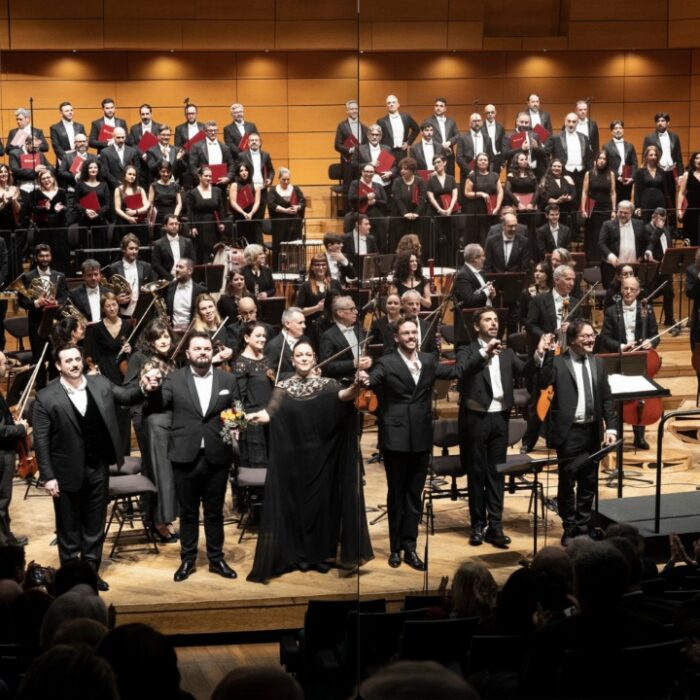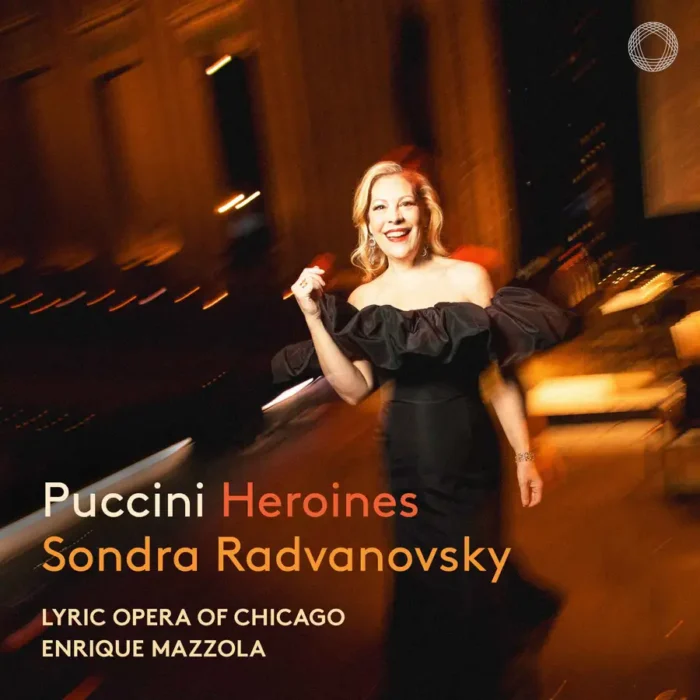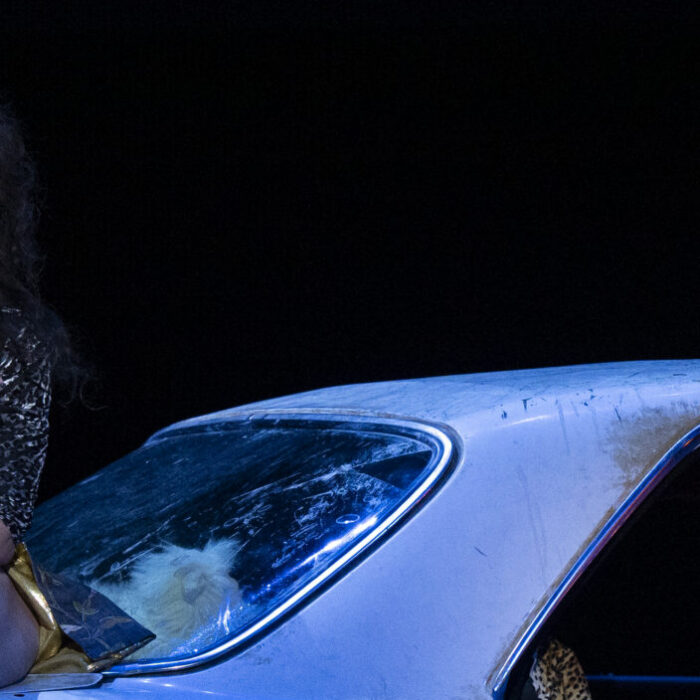
Carnegie Hall 2023-24 Review: Lady Macbeth of Mtsensk
Kristine Opolais & Andris Nelsons are a Dynamic Duo in Shostakovich’s Masterwork
By Francisco Salazar(Credit: © Steve J. Sherman 2024)
It’s been five years since the New York audiences have heard soprano Kristine Opolais. Once a stalwart at the Metropolitan Opera, the soprano has now dedicated herself to performing mostly in Europe and seeking “something special” in the productions or performances she does.
And in her return to New York, the soprano found that “special something” in “Lady Macbeth of Mtsensk” at Carnegie Hall alongside the Boston Symphony Orchestra and Andris Nelsons.
Before I continue this review, I will disclose that OperaWire has already reviewed the work from Boston, where the first two performances were given with the same cast, and as a result, this will be a much shorter review concentrated on the main cast. For a more in-depth look at the entire cast, read here.
The Lady
In the role of Katerina Ismailova, Opolais was singing her third performance in a series of concerts of the Shostakovich masterwork. Opolais relished the role giving us different facets to her character. In the first act aria, she displayed a more secure personage and played into the satirical elements of Katerina’s boredom. Her phrasing was a bit more exaggerated but the legato line remained smooth and cool as she sang about boredom.
But that quickly evolved into something seductive and chaotic as she yielded to the advances made by Brenden Gunnell’s Sergey. The voice obtained a wild energy and blossomed on the high notes emphasizing the sexual tension of the scene. The articulation was also clear and well-accented and you could feel that Opolais was taking in each phrase with joy.
During the Act two duet that opens with Sergey and Katerina, Opolais and Gunnell caressed each line with lyrical phrases that reflected the ethereal nature of their relationship. That would quickly turn during the confrontation with Günther Groissböck’s Boris Ismailov. Here Opolais’ voice opened up as she sang the wild syncopated lines of Shostakovich’s music with vigor, her voice climbing with incredible flexibility over the heavy orchestra. Her high notes also brought immense power into the hall.
In the second scene of the second act, one started to see Opolais’ Katerina change. Here Opolais gave into the tremor and fear of the character as she sang some of her lines with an eerie pianissimo whisper. There were also many disconnect lines and the sound turned to a straight tone, perfectly effective for the moment.
The Act four aria, where Katerina is pushed to her limits, saw the soprano at her most dramatic. She sang with a lyrical line that emphasized the text with clarity. Then there were moments where she almost spoke the line with a shudder and other moments where you could just hear her voice reflect a lament. It was powerful in every way.
At the end of the night, Opolais received a well-deserved massive ovation as she proved once again why she is one of the best singing actresses currently performing. In 2025, audiences will get to see her Katerina in Leipzig, but let’s hope the soprano is allowed to return to the New York stage and audiences won’t have to wait another five years for her next appearance.
Ironic and Scene Stealing
While Opolais’ Katerina was tragic, Groissböck’s and Gunnell played into the grotesque and farcical nature of Shostakovich’s music. Groissböck’s Boris played into what the singing actor does best. He can be witty, ironic, and at the same time a villain. His Act two monologue was played with witty energy that displayed the bass’ booming voice and his expertise in patter. His articulation was also excellent and it reminded one of Groissböck’s Baron Ochs. While the voice at times sounded overpowered by the orchestra, Groissböck was impossible to look away from.
One thing I might add, Groissböck’s character never seemed to be the ominous figure that one thinks of, as the bass played into Shostakovich’s satire and his irony. Only when the bass appeared offstage as a ghost did we get that danger, his booming bass-baritone haunting.
As my colleague noted in his Boston review, Gunnell stripped any masculine quality from Sergey and instead, one was left with a weak man who couldn’t quite figure out what he wanted. By the end of the opera, when he abandons Katerina, there was not much surprise and that was what made Opolais’ Katerina all the more of a tragic figure. Vocally, the tenor was fantastic as he performed with ample high notes and a lyrical and flexible voice. Sometimes he would be overpowered by the orchestra but it was still an impressive performance.
A couple of standouts in the supporting cast included Patrick Guetti, who displayed an immense bass that poured sound into Carnegie Hall with great ease, and Maria Barakova who sang the role of Sonyetka, displaying a seductive mezzo voice that is promising and definitely one to look out for.
The Maestro
But the success of this evening also rides with Andris Nelsons and the Boston Symphony Orchestra. Shostakovich’s music is enormous and difficult. He takes you on a ride sonically from the eerie and dark opening lines to the sarcastic “sex” that closes Act one, to the dramatic crescendoes, and the sweeping rhythmic vocal lines. Nelsons was up to the task in every way on this evening, highlighting the ebb and flows of the score.
The gorgeous cello lines in Act two were complemented by the violins, while the raucous “sex” music at the end of Act one was frenetic and intense. There are many instances where the orchestra’s sound crescendoes to trembling chords and Nelson did this to thrilling effect, especially after the death of Boris and at the end of the opera where he went from a piano to a rousing fortissimo. The syncopated lines that are so well-known in Shosatkovich’s music were also well articulated and his brass players were also equipped to emphasize the irony of the score. Then there were the intimate moments, like Katerina’s inner monologues, where Nelsons conducted with a softer, more intimate sound that allowed Opolais the time to express her character. This was an orchestra that showcased so many shades and made for one of the most compelling operatic performances in New York this season.
For all those who missed this momentous occasion, Deutsche Grammophon will release a recording of this opera and it is truly a treat that should not be missed.


